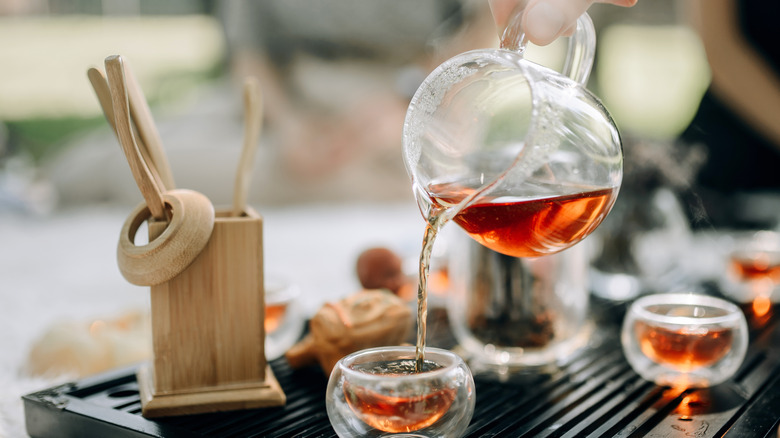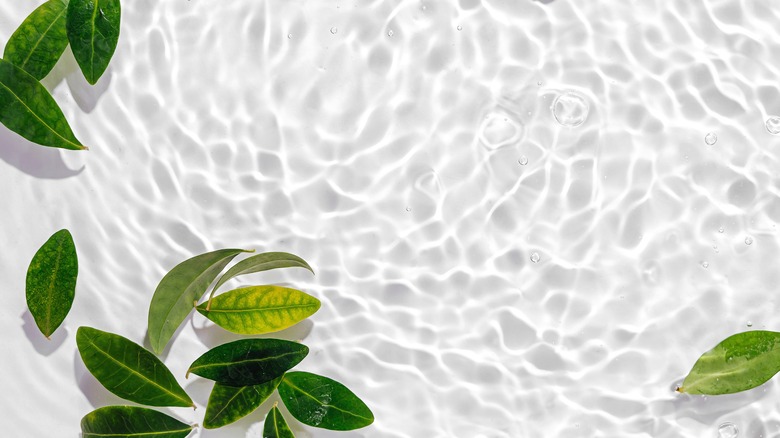The Best Type Of Water For Brewing The Tastiest Cup Of Tea
We all have our creature comforts. When it's cold out, when the weather takes a turn for the worst, or when you have a night out that leaves you double-guessing your life choices the morning after, tea and the art of making it is one of those daily rituals that can offer some clarity and tranquility in a moment of peace.
Tea has been enjoyed for thousands of years. It's steeped in history from the East to the West, and there are thousands of varieties of teas out there to choose from. When it comes to selection, there are of course teas you should be drinking and teas you shouldn't. Mostly, it comes down to quality, brew specifics, and health benefits. For example, most herbal teas actually have longer brew times to release the benefits of the infusion because "herbal tea" isn't really tea, but a different category called a tisane.
Most importantly, remember that tea is made up of two major components: The actual tea you've selected and the water. With so much of the attention going to the tea, we've taken for granted the vehicle for sipping the calming elixir itself: water. The quality of water is paramount when it comes to brewing that perfect cup of tea.
Don't just go with the flow, pay attention to the water
While the tea scholar Lu Yu proclaimed the best water for tea comes "from the center of a swiftly moving mountain stream," our modern lives do not necessarily allow for this level of diligence (via The Spruce Eats). Still, you want to take into account the hardness or softness of the water. Too hard, and your tea will have too much minerality to it. Too soft, and it will come out flat-tasting.
Water that is fresh and has a neutral pH of 7 is what's best for brewing tea. Tap water, while cheap, convenient, and readily accessible, can impart impurities to your tea that will negatively affect not only its taste but also its healthy balance of minerals and nutrients. Plus, depending on where you live, tap water can have chemicals and too many minerals that throw off the quality of water you're looking for.
Spring or bottled water comes out on top in producing a tasty cup of tea. In addition, filtering your tap water can make it less hard and is a good compromise if you don't have access to spring or bottled water, which can get costly. Whatever you decide, the important thing is to be aware and pay attention to the water you're using. It often gets overlooked, and it's the easiest way to take an average cup of tea to the next level.

